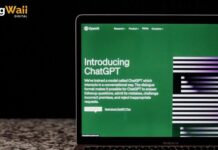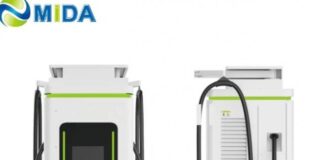Presentation highlights a third-party-free model with encrypted QR code authentication, enabling universities to retain control over data ownership and credential trust, reduce fraud, and support academic mobility in the United States and worldwide.
More on Isstories:
- Immigrant Entrepreneurship in America by Gorm Tuxen Achieves #1 Amazon Bestseller Status
- Colle AI Formalizes Strategy Around Cross-Chain Asset Versioning Infrastructure.
- Imagen Network Sets Forth Multi-Perspective Rendering Initiative for Immersive Asset Creation
- Apolosign Digital Wall Calendar Tackles “Proxy Parenting” in U.S. Homes
- 25 Countries for Solo Travelers to Discover Themselves
(Isstories Editorial):- Washington, D.C, District of Columbia Sep 29, 2025 (Issuewire.com) – TrustDiplomas, a member of UPCEA and AACRAO, is proud to announce its participation in the 2025 Convergence Conference, taking place in Washington, D.C. from September 29 to October 2, 2025.
Today, at 4:15 PM (EDT) during Concurrent Sessions II, Rémy A. Eisenstein, Founder of TrustDiplomas, will deliver a strategic session titled
“Rethinking Credential Trust: A Scalable, Third-Party-Free Authentication Hub”
-
Room: Grand FG
-
Track: Registrar
-
Level: Strategic
-
Tag: Technology
The session will be moderated by Sara Morelli of the University of Iowa.
Session Overview
This session explores a scalable, institution-led model for real-time credential authentication that eliminates reliance on third-party vendors. Leveraging encrypted QR codes and a trustless verification architecture, the solution restores data sovereignty to registrars through its patented Certidox technology, which requires no third-party involvement and ensures full FERPA compliance.
TrustDiplomas verifies credential authenticity in less than a second, delivering instant, tamper-proof results. Institutions retain full control over credential issuance and revocation while enabling instant validation by employers and other external stakeholders. The platform also provides real-time alerts, automatically notifying employers and past verifiers whenever a credential’s status changes (revocation, suspension, or correction).
This patented approach brings significant benefits across the academic ecosystem:
-
For registrars and universities: sovereignty over data, reduced administrative workload, and enhanced credibility.
-
For employers: faster, more secure hiring decisions with no intermediaries and no plain-text data storage.
-
For graduates: the ability to showcase verified credentials via QR codes, strengthening employability.
-
For businesses: a flexible, Pay-As-You-Go model of verification.
Designed to reduce registrar workload and support academic mobility in the United States and worldwide, this model aligns with today’s expectations around transparency, data privacy, and alternative credentials.
Attendees will benefit from a live demonstration and a strategic discussion on implementation pathways, governance models, and collaborative opportunities across diverse institutional settings. They will leave with actionable takeaways to strengthen credential trust and to design both short-term pilots and longer-term institutional strategies.
Source :TrustDiplomas
This article was originally published by IssueWire. Read the original article here.





















